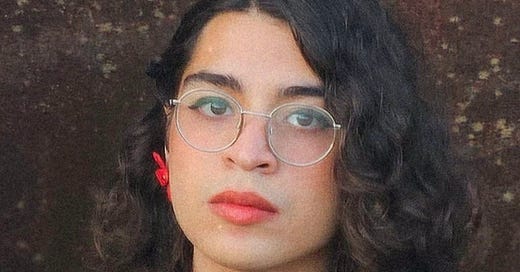What is philosophy to you?
In 1923, the phenomenologist Edmund Husserl claimed that “philosophy itself retains the role of guide, which is its special infinite task.” I believe that philosophy can still be our guide today, meaning that it can help us to understand our unique tasks in the world and to consciously realize them alongside others. Ignorance, powerlessness, and misunderstanding so often make what’s possible feel impossible, alienating us from the world we’ve inherited. But this world is also one of our own creation and we’re capable of redefining our place in it. The ruthlessly critical spirit required to do this, the collective participation required to find a new historical course, and the methods required to disclose its meaning—all of this I call philosophy, which is infinitely at work in our lives.
How were you first introduced to philosophy?
In the summer of my first year as an undergraduate student, I took a “History of Ideas” course with Professor Bruce Harvey which introduced me to the Romantic poetry of John Keats and Percy Bysshe Shelley. The philosophical generosity of their writing had a profound impact on my sense of self, and the experience reoriented my life toward making sense of its resonances. Soon after I took an inspiring literary theory course with Professor Anne Castro and decided that my ownmost calling was philosophy, though I’ve never lost the sense that literature and poetry have something special to teach us. My formal introduction to philosophy was a course on existentialism with Professor Céline Leboeuf, from which my methodological commitment to phenomenology blossomed. With every step I’ve taken toward philosophy, my guiding concern has been what it can disclose about our intersubjective relation to the world as a whole.
How do you practice philosophy today?
I’m fond of Sylvia Wynter’s conception of being human as praxis. The work of philosophy should be to make an emancipatory praxis possible in the present, which can only be realized if we refuse to turn away from the most difficult questions. As the humanities are systematically dismantled in the U.S. and the ongoing consequences of scholasticide are felt in Gaza, what it means to practice philosophy must include our responsibility to confront everything that diminishes human life. I hope to share this intellectual responsibility with others in the discipline and to help build a better world beyond it.
What is a philosophical issue that is important to you?
I care a great deal about reckoning with the contradictory legacies of humanism. The meaning of humanism remains deeply contested philosophical terrain. From Martin Heidegger’s critique of humanism to the infamous 16th century Valladolid debate, we have continuously been faced with the limits of humanism as we know it. Even so, I believe in the unrealized promise of humanism. As with Husserl’s conception of philosophy as an infinite task, humanism isn’t an unchanging philosophical standpoint but a project which perpetually demands that we begin again. The dialectic of humanism ultimately concerns us all, and we are each tasked with determining its future.
What books, podcasts, or other media have stood out to you as a philosopher?
There are so many to name, but I’ll only include three. (1) In the summer of my second year as an undergraduate student, I read Being and Time by Martin Heidegger from beginning to end. The quiet months I spent with the book were vital for comprehending the systematic dimensions of those philosophical questions which I had only just learned to ask myself. (2) As a trans woman, I found the book Queer Phenomenology: Orientations, Objects, Others by Sara Ahmed deeply affecting. Her poetic, rigorous, and searching relationship to phenomenology reframed the bounds of what I thought intellectually possible. (3) I studied the Critique of Dialectical Reason Volume I: Theory of Practical Ensembles by Jean-Paul Sartre during the first semester of my PhD program. It’s one of the most expansive works of political and existential philosophy written in the 20th century, and the most inspiring philosophical work I’ve read thus far.
Judith Aloise Chavarria is a philosophy PhD student at Pennsylvania State University. Her studies are primarily situated at the intersection of phenomenology, Marxism, and deconstruction.
https://philosophy.la.psu.edu/people/judith-chavarria/




